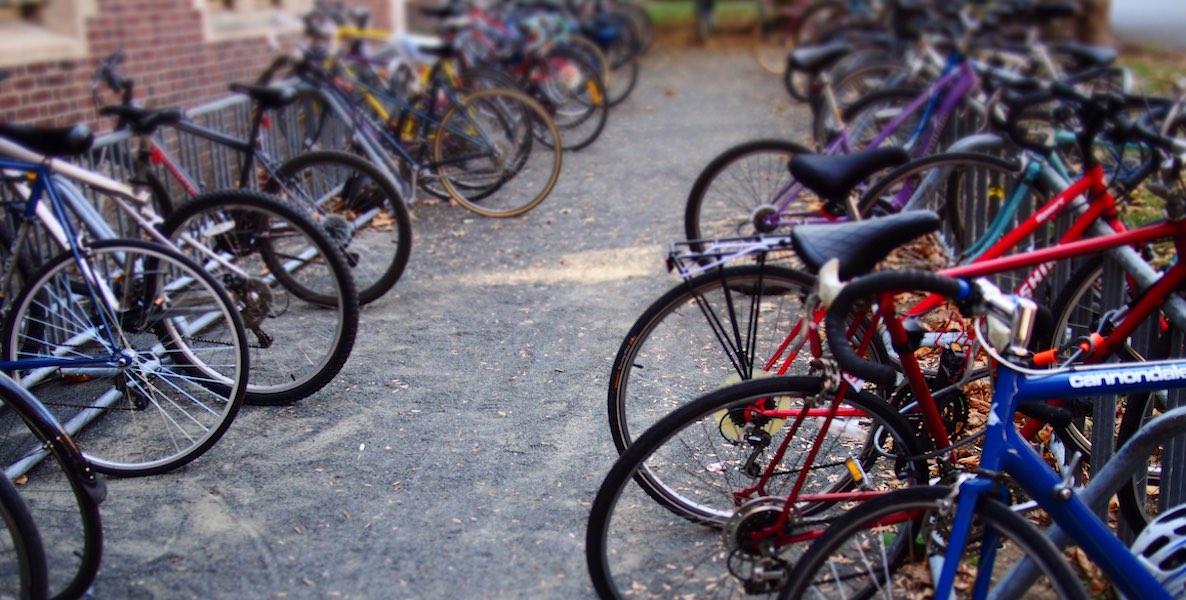They were everywhere, it seemed, on every avenue and on every street. They were taking advantage of this city’s currently-crippled transportation systems. They were bicyclists, and they were unbound.
Philly commuters were left with few options for getting to work during the SEPTA strike. They could walk. They could drive. Or they could bike. Randy LoBasso, the communications manager of the Bicycle Coalition of Greater Philadelphia, said the SEPTA strike led to an explosion in city bike commuting.
Already, Philly has taken some big steps towards becoming a major biking hub in the U.S. In September, bicycling.com ranked Philadelphia the 15th-best city for bicyclists in the country; in October, a survey found Philadelphia-Camden-Wilmington to be the country’s second-best metropolitan region for bikers. Mayor Kenney has even vowed to add 30 miles of protected bike paths within the city. Looking back, perhaps we’ll find that the region’s trip to first place started with the SEPTA strike.
On the first day of the strike, usage shot up to 3,500 trips per day, and on the second and third days of the strike Indego was managing around 4,000 trips per day. Indego ridership hit a SEPTA strike peak of 4,300 last Friday.
Last Friday, the Coalition conducted a “bike count” on the South Street Bridge, documenting the number of bikes that use the bridge over the course of the day. The Coalition found that the bridge was averaging 525 bikes an hour, as opposed to the average of 383. That’s roughly a 37 percent increase on one of Philadelphia’s busiest bike thoroughfares.
“We don’t know exactly how the South Street Bridge numbers are going to compare to the rest of the city, but that’s probably what we’re going to see around the whole city,” said LoBasso.
It’s not just the Bicycle Coalition that noticed more bikes on the road. Indego, Philadelphia’s bike-sharing service, struggled just to keep the racks full.
“It’s been a busy couple of days,” said a mildly-exasperated Aaron Ritz, the transportation programs manager for the city of Philadelphia, who runs the Indego program. Ritz said that on an average day prior to the strike, Indego saw about 2,400 trips per day. On the first day of the strike, usage shot up to 3,500 trips per day, and on the second and third days of the strike Indego was managing around 4,000 trips per day. “Those are very strong numbers for us,” says Ritz. Indego ridership hit a SEPTA strike peak of 4,300 last Friday, and daily ridership was at 4,000 or higher on three of five weekdays during the strike.
To keep up with demand for Indego bikes, the group had extra service vans on the road, opened up unlimited bike parking at three Indego stations and expanded the capacity of what they call “Indego valet service,” which picks up bikes away from Indego stations.
Ritz said that one of the main problems facing Indego during the strike is the same one that all Philadelphia commuters were dealing with: traffic. Ritz said that Indego found it difficult to keep up with demand, and the vans and trucks filled with bikes that they had cycling through traffic to keep racks in neighborhoods outside of Center City full were often caught in gridlock.
But could so many people commuting via bike help change the landscape for bicycle commuters in Philadelphia? Lobasso noted that the last SEPTA strike in 2009, which lasted for six days, led to a 38 percent increase in overall bike usage in Philadelphia, and that a lot of those new bicyclists ended up taking their bikes to work even after the strike was over.
“We’re really not trying to profit on the hard time people are having getting around town,” said Ritz. “But what we’re hopeful for is that the strike gave people an opportunity to try Indego and to see if it works for them in their normal commute. Hopefully, what we do find is that people find it to be a viable option, whether or not they convert to our most loyal riders.”
LoBasso says that if people who used bikes during the strike continue using them afterward, “it’s good for everybody. It creates less congestion on our streets, it creates a healthier city, less smog, and it creates healthier citizenry.”
Ritz said that while people responded positively to Indego during the strike, and that he’s happy that more people ended up having an opportunity to use the bikes, he wishes that any gains Indego made didn’t come at the expense of the commuter. He says that he hopes “Indego will again be used as a complement to buses, subways and trolleys rather than a replacement for it.”
LoBasso thinks that the uptick in bike usage during the SEPTA strike could be a net gain for the biking community in Philly. He says that if people who used bikes during the strike continue using them afterward, “it’s good for everybody. It creates less congestion on our streets, it creates a healthier city, less smog, and it creates healthier citizenry.”
As it has in the past, LoBasso even believes that more bicyclists on the road could lead to government change. “Maybe with more people riding, the government will step up and create better, safer infrastructure for cyclists—more protected bike lanes, more protected intersections,” he said.
If so, that would mean we could point to at least one benefit to the agony that was the six-day transit strike.
Header photo by lisa cee (Lisa Campeau)/Flickr



